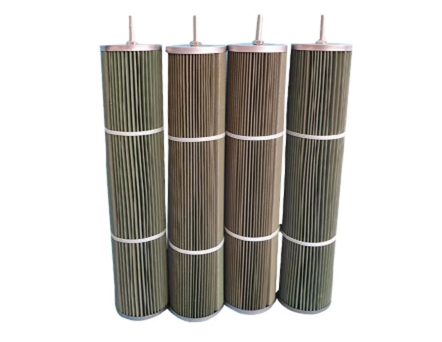 Tel:
+8618931101301
Tel:
+8618931101301
نوفمبر . 17, 2024 13:19 Back to list
gas turbine air intake filter
The Importance of Air Intake Filters in Gas Turbine Operations
Gas turbines are pivotal in various applications, ranging from power generation to aerospace propulsion. One critical component that significantly impacts the performance and efficiency of gas turbines is the air intake filter. These filters play an essential role in safeguarding the turbine's operational integrity by ensuring that only clean, uncontaminated air enters the combustion process.
Understanding the Role of Air Intake Filters
Air intake filters serve the primary purpose of removing particulates, dust, and other contaminants from the air before it reaches the gas turbine's compressor. The quality of the air entering the turbine affects combustion efficiency, emissions, and overall performance. Without adequate filtration, particles can accumulate on turbine blades, leading to erosion, corrosion, and decreased efficiency. This can result in increased maintenance costs and unplanned downtime.
Types of Air Intake Filters
There are several types of air intake filters used in gas turbines, including mechanical filters, electrostatic filters, and HEPA (High-Efficiency Particulate Air) filters
.1. Mechanical Filters These filters, often made from fabric or paper, capture particles through physical barriers. Their effectiveness depends on the size of the filter medium’s pores and the velocity of the air passing through them.
2. Electrostatic Filters Utilizing charged plates, these filters attract and trap particles. They are particularly effective for smaller particles and can be cleaned and reused, making them a sustainable choice.
3. HEPA Filters Known for their high filtration efficiency, HEPA filters can trap a significant percentage of very small particles, making them ideal for environments where air quality must be tightly controlled.
gas turbine air intake filter

Each type of filter has its advantages and is selected based on specific operational requirements, environmental conditions, and maintenance considerations.
Impact on Performance and Efficiency
The efficiency of a gas turbine is closely tied to the pressure and temperature of the air entering the system. A clogged or dirty air intake filter can lead to reduced airflow, increasing the load on the compressor and potentially leading to overheating. This situation compromises the turbine's performance and can even shorten its lifespan.
Furthermore, the quality of the air can also impact emissions. Gas turbines that operate with cleaner air produce fewer pollutants, contributing to compliance with environmental regulations. Regular maintenance and replacement of air intake filters are therefore crucial not only for operational efficiency but also for environmental stewardship.
Advancements in Filter Technology
Recent advancements in filtration technology have led to improved efficiency and longer service intervals for air intake filters. Innovations such as nanofiber technology and advanced materials have enhanced the ability of filters to capture micro-particles while maintaining low pressure drops. Moreover, digital monitoring systems are now being integrated into turbine operations, allowing operators to track filter performance in real-time and schedule maintenance proactively.
Conclusion
Air intake filters are a vital component in the operation of gas turbines, directly influencing their efficiency, performance, and emissions. Selecting the appropriate filter type, maintaining it regularly, and embracing technological advancements are essential steps for organizations relying on gas turbines. As the demand for cleaner energy solutions and operational efficiency rises, the role of these unassuming yet crucial components will only continue to grow in importance. By prioritizing air quality at the intake stage, operators can ensure that their gas turbines operate at optimal levels, contributing to a more sustainable and efficient energy landscape.
-
Working principle of high-efficiency dust filter elementNewsJun.26,2025
-
The truth about washable filters: Does repeated use really not affect efficiency?NewsJun.25,2025
-
Effect of humidity on the performance of activated carbon filter elementsNewsJun.24,2025
-
Material selection considerations for dust removal filter elements under high temperature conditionsNewsJun.23,2025
-
Cold knowledge of air filters: Why are some designed to be pleated?NewsJun.16,2025
-
Factory direct supply! High-precision air filter element wholesale and customizationNewsJun.12,2025

 Email:
Email:





